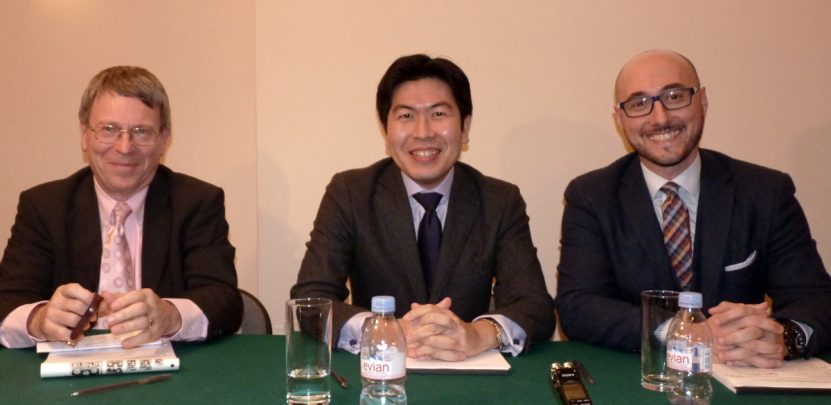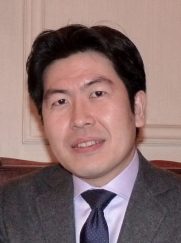 Seminar
SeminarWednesday 13 November 2013
6:00pm – 7:15pm
Japan’s Direction: Pacifism and Legitimate Use of Force
Drinks reception: 7:15pm – 8:00pm
13/14 Cornwall Terrace, London, NW1 4QP
Organised by The Daiwa Anglo-Japanese Foundation
How is the Japanese debate about the use of force evolving? In a fast-evolving East Asian security environment, there is an intensifying debate among Japanese politicians and legal experts about when the use of force in international relations is acceptable, and the interpretation, and possible revision, of Japan’s post-War “Peace Constitution”.
This seminar discussed these issues in relation to Japan’s evolving relations with China, its defence policy, and its military capabilities. As Tokyo prepares an important defence review and Japan’s political authorities consider the creation of a National Security Council, this seminar was a timely opportunity to assess the nature and purpose of recent changes.
How are Sino-Japanese maritime disputes, regional security issues, and international commitments changing public opinion and government policy relating to the use of force? How far will the current transformation go, and what kind of actor is Japan likely to become as a result? Is the country’s Constitution no longer fit for purpose? These questions were at the heart of this seminar’s discussion.
The recording of the event can be viewed here:
About the contributors

Professor Reinhard Drifte
Professor Reinhard Drifte is Professor Emeritus of Newcastle University and visiting professor at Japanese and French universities. He is also an Associate Fellow at the Royal United Services Institute, an independent think tank working on defence and security research. His main research interests are Japanese-Chinese relations (including territorial issues in the East China Sea and South China Sea), Japanese foreign policy in general, international security in Northeast Asia and EU-East Asia relations. Book publications include Japan’s Security Relations with China since 1989: From Balancing to Bandwagoning? (Routledge, 2002), Japan’s Quest For A Permanent Security Council Sea:. A Matter of Pride or Justice? (Macmillan, 1999) and Japan’s Foreign Policy in the 1990s: From Economic Superpower to What Power? (Macmillan 1998 + 1996).

Dr Alessio Patalano
Dr Alessio Patalano is Lecturer in War Studies at the Department of War Studies, King’s College London, and specialises in Japanese naval history and strategy and contemporary maritime issues in East Asia. He is the Director of the Asian Security & Warfare Research Group and Research Associate at the King’s China Institute. In Japan, Dr Patalano has been a Visiting Scholar at Aoyama Gakuin University and at the National Graduate Institute for Policy Studies (GRIPS), both in Tokyo, and currently is Adjunct Fellow at the Institute of Contemporary Asian Studies, Temple University Japan. His publications include Maritime Strategy and National Security in Britain and Japan: From the First Alliance to Post-9/11 (Brill/Global Oriental, 2012).

Dr Michito Tsuruoka
Dr Michito Tsuruoka is a Senior Research Fellow at the National Institute for Defense Studies (NIDS), Ministry of Defense, Japan. From May 2013 to March 2014, he is a Visiting Fellow at Royal United Services Institute for Defence and Security Studies (RUSI) in London. From April 2012 to April 2013, Dr Tsuruoka was seconded to the Ministry of Defense as a Deputy Director of the International Policy Division, Bureau of Defense Policy, where he was in charge of multilateral security and defence cooperation in the Asia-Pacific region. Before joining the NIDS in 2009, he served as Special Adviser for NATO at the Embassy of Japan in Belgium from 2005 to 2008, where he covered a broad range of NATO issues including Japan-NATO cooperation and Afghanistan. His area of expertise includes European security, NATO, European integration, European foreign policy, defence diplomacy, nuclear policy, extended deterrence, missile defence and Japan’s foreign, security and defence policy.